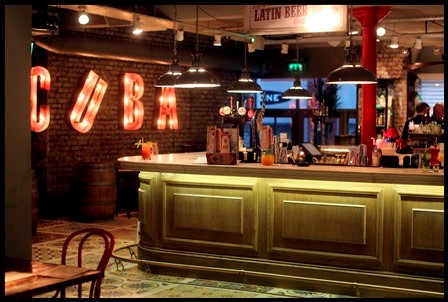Bars group aiming to close six sites as part of proposed CVA deal with landlords

Manchester-based Revolution Bars Group has launched a company voluntary arrangement (CVA) to reduce its portfolio and rental costs.
It said the CVA will is being sought by one of its subsidiaries, Revolution Bars Ltd (RBL).
The move follows the enforced shutdown of bars by the Government in March this year.
The group said over the past seven months it has agreed a sharing of the rental burden of certain sites with about two thirds of its landlords, covering a wide spectrum, but many comprise lease extensions or the removal of tenant break options in return for short term rent relief.
It explained that its sales have suffered as new lockdown measures and the 10pm curfew has been introduced in the face of a second wave of COVID-19.
Comparable venue sales in the eight weeks from when the group started reopening bars on July 4, through to August 29 were 72.5% of last year. In the subsequent three weeks, comparable venue sales remained buoyant at 77.8% of last year, but in the last five weeks to October 24, have reduced to 49.4%.
Given the latest Government restrictions the group’s trading outlook is uncertain and based on all the information and commentary available, the board now anticipates that the important Christmas trading period will be severely compromised and any return to near normal levels will not be possible before next Spring at the very earliest.
In the circumstances, the board is proposing a restructuring of certain of the group’s property interests through the CVA.
RBL operates 50 Revolution branded bars, out of a total 73 group outlets. The CVA proposes to reduce the size of RBL’s estate by six bars and reduce its rental cost base, so improving the profitability and return on capital of the group over the long-term.
A review of the RBL portfolio has identified 13 trading sites that are either significantly underperforming due to their location and local trading conditions, significantly over-rented, not expected to generate future profitable returns going forward, or subject to a combination of all three factors.
Under the terms of the proposed CVA, RBL expects to exit six bars and obtain materially improved rental terms on seven others.
The remaining 37 bars in the RBL portfolio will not be materially affected. These bars either benefit from group guarantees, are considered strategic to the brand, and/or rental mitigation has been agreed with landlords in recent months.
If approved and successfully implemented, the RBL business is expected to comprise approximately 44 bars.
As part of the proposals, the group will write-off 50% of the £30.9m debt owed by RBL to RBG, which will materially strengthen RBL’s balance sheet.
If the CVA proposals are accepted, the group estimates that its annual cash flows – before one-off costs of implementing the CVA – will improve over the next two years by approximately £2m per annum. The CVA will not affect the ordinary course operations of the rest of the group, which continues to trade as a going concern.
The group’s lender, NatWest, has agreed to waive the defaults that arise from the CVA which would otherwise mean that it is in breach of certain undertakings under both its revolving credit facilities and its CLBILS loans if the CVA proposals are accepted.
Subject to the CVA proposals being agreed at a meeting on November 13, it is expected the group will report its final results for the 52 weeks ended June 27, 2020 on December 17, 2020 and the group’s AGM will be held on December 22, 2020.
Chief executive, Rob Pitcher, said: “Throughout this extended period of distress caused by COVID-19, the group has sought to prioritise the health and well-being of its staff and customers, minimise its cash consumption, maintain good levels of liquidity to ensure its ongoing viability and to be in a position to take advantage of opportunities that may arise once restrictions are lifted.
“The CVA proposed by the group’s Revolution Bars Limited subsidiary entity, if agreed by landlords, is another proactive step to lower outgoings to help safeguard the future of the group and improve long-term performance.”




